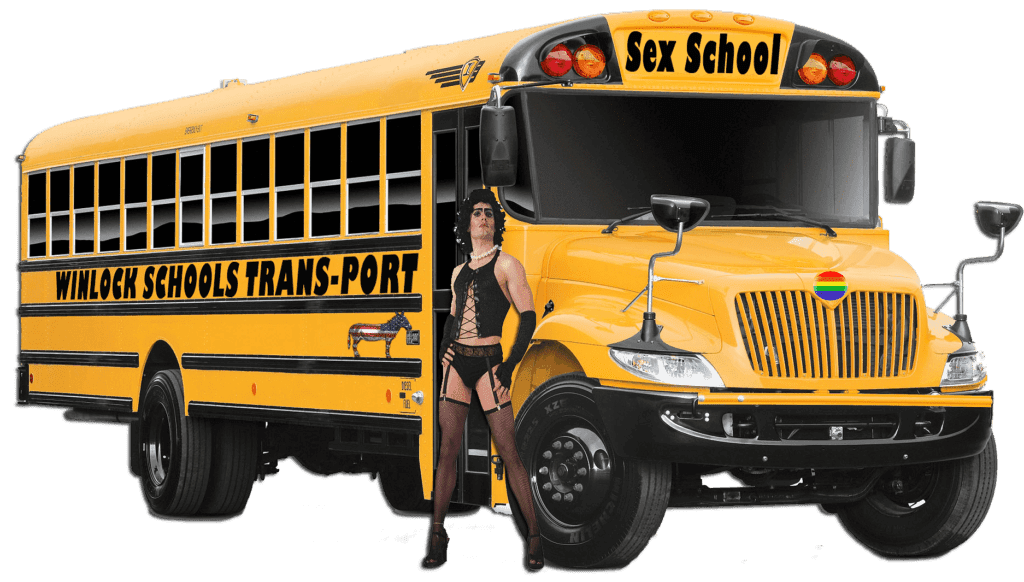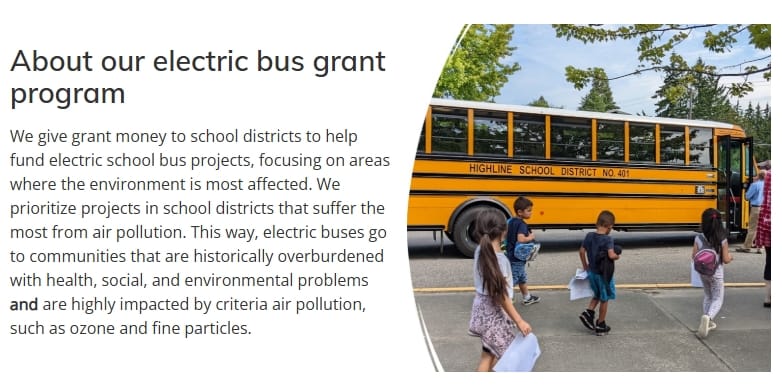WA Legislature revs up plan to electrify 10,000 school buses
A bill to switch from diesel vehicles — plus $50M from cap-and-trade revenue — passed out of the Legislature, but did not offer a timeline.

The Distraction was this…..
“It is as much about healthy kids as it is for the environment. … I understand the anxiety about this big change, but we can’t wait any longer. Our children’s future depends on this,”said Rep Tana Senn, D-Mercer Island, who introduced House Bill 1368 to make this commitment to switch from diesel to electric school buses.
The scam was from DEI, Tree huggers....
School districts throughout the United States are ditching electric school buses, manufactured by a Canadian company that has fallen into bankruptcy, for diesel school buses, citing the difficulty in getting electric buses repaired.
The return to diesel school buses comes as Quebec-based Lion Electric, which the Biden administration awarded $159 million “to manufacture 435 school buses between 2022 and 2024,” has fallen into bankruptcy, according to the Washington Free Beacon. As a result, the company has “warned school districts that its dire financial straits prevent it from servicing” the electric school buses.
Several superintendents explained to the outlet that while they would try to keep the “electric fleet” of school buses operating “for as long as possible,” they would eventually have to “return to diesel” due to diesel school buses being more affordable.
“We are going to keep our electric fleet on the roads for as long as possible,”
Mike Leskowich, who serves as the superintendent of the Homer Community School District in Michigan, told the outlet. Leskowich’s school district “received $2.8 million in federal funding to procure seven Lion buses in 2022.”
“Eventually, however, we will return to diesel, as the cost of the vehicle is far less than electric,”
Leskowich added.
Charlie Butler, who serves as the superintendent of a Louisiana school district, told the outlet that while the “14 Lion buses his district received are still new,” he is having difficulty finding “companies that can repair them.”
MUST READ: “The Biden administration awarded Canadian electric bus maker Lion Electric $159 million to manufacture 435 school buses between 2022 and 2024, making it the third-largest recipient of such funding. The company has since fallen into bankruptcy, failed to deliver… pic.twitter.com/st3D5PyoHy
— Steve Guest (@SteveGuest) August 22, 2025
Per the outlet:
The Washington Free Beacon reported earlier this year that Lion, then nearing bankruptcy, had yet to deliver $95 million worth of the electric buses it pledged to produce as part of the Biden administration’s $5 billion Clean School Bus program. Since then, Lion was sold for just $6 million during bankruptcy proceedings after being valued at $4.7 billion as recently as June 2021. The company also permanently shuttered multiple manufacturing plants, fired the majority of its employees, and told consumers that it could no longer honor warranties and purchase orders in the United States.
Travis Fisher, who works as the director of energy and environmental policy studies at the Cato Institute, explained to the outlet that this was “yet another example that perhaps there will be large bumps in the road” in switching to electric vehicles (EVs).
“For anyone who thought the transition to EVs would be easy or even profitable, this is yet another example that perhaps there will be large bumps in the road,”
Fisher explained.
late January, the Environmental Protection Agency (EPA) visited schools in Winthrop, Maine as part of an investigation into Lion Electric’s school buses that were supplied to schools “through federal grants.”
Interim Superintendent Becky Foley revealed that the EPA met with her and the school district’s director of transportation regarding four electric school buses that have “been plagued with problems” since they arrived from the company in late 2023.
Intercity Transit set to acquire hydrogen-powered buses, trucks
Intercity Transit’s (IT) board of directors authorized General Manager Emily Bergkamp to purchase five 40-foot hydrogen fuel cell electric buses from New Flyer of America Inc. for $8,950,435 on Wednesday, April 13.
Each bus costs $1,588,228, for a total of $7,941,139. IT is also paying $522,518 for associated diagnostic tools and training and includes a 4% contingency fund on the purchase order.
The buses were procured from a contract facilitated by the Washington State Department of Enterprise Services (DES), while the funds to purchase them were sourced from a $5.6 million regional mobility grant and a $3.4 million green transportation grant from the Washington State Department of Transportation.
According to a document prepared for the meeting, as New Flyer is already laying out its pipeline for 2025, IT will have to secure an order as soon as possible to meet the grant requirements.Fleet and Facilities Director Jonathan Yee also gave an update about IT’s transition to zero emissions status. Yee told the board that they are still working with the Center for Transportation and the Environment to develop their zero-emissions transition plan and are currently working on a fuel demand analysis to determine their fueling needs. Once IT has established the scope of its fueling needs, Yee said that they plan to launch several requests of proposals to acquire various fueling solutions.





